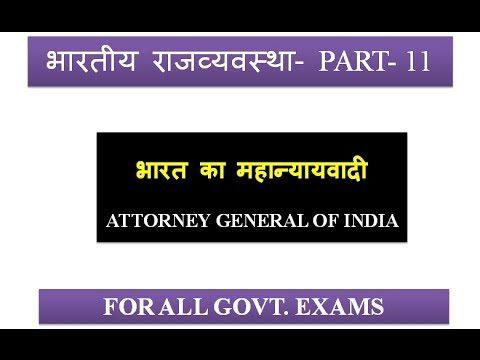The Attorney General is the first law officer of the Country. He is the chief advisor to the government of India in all legal matters.
Article 76 of the Constitution of India provides for the office of the Attorney General of India.
APPOINTMENT
The Attorney General of India is appointed by the President.
QUALIFICATIONS
- Should be a Citizen of India.
- Qualified to be appointed as a judge of the Supreme Court.
TERM
The term of office not mentioned in the Constitution. The Attorney General of India holds the office during the pleasure of the President.
REMOVAL
The Attorney General of India is removed by the President of India. The Procedure and the grounds for the removal of the Attorney General is not mentioned in the Constitution.
RESIGNATION
The Attorney General submits the resignation to the President of India.
SALARY
The salary of the Attorney General is decided by the President from time to time.
FUNCTIONS
First law officer of the country.- The Attorney General of India has the right to speak and take part in the proceedings of both the houses of Parliament or in the joint session of the parliament without a right to vote. Note: Only the members of the Parliament have the right to vote in their respective house.
- Gives advice to the Government of India upon such legal matters which are referred by the President.
- Performs functions of legal character that are assigned by the President.
- Discharges the functions conferred by the Constitution or any other law.
- He appears on behalf of the Government of India in all cases in the Supreme Court in which the Government of India is concerned.
- Represents the Government of India in any reference made by the President to the Supreme Court under Article 143 of the Constitution.
- Appears in any High Court in any case in which the Government of India is concerned.
- He has the right to
audience in any court in the territory of India.

